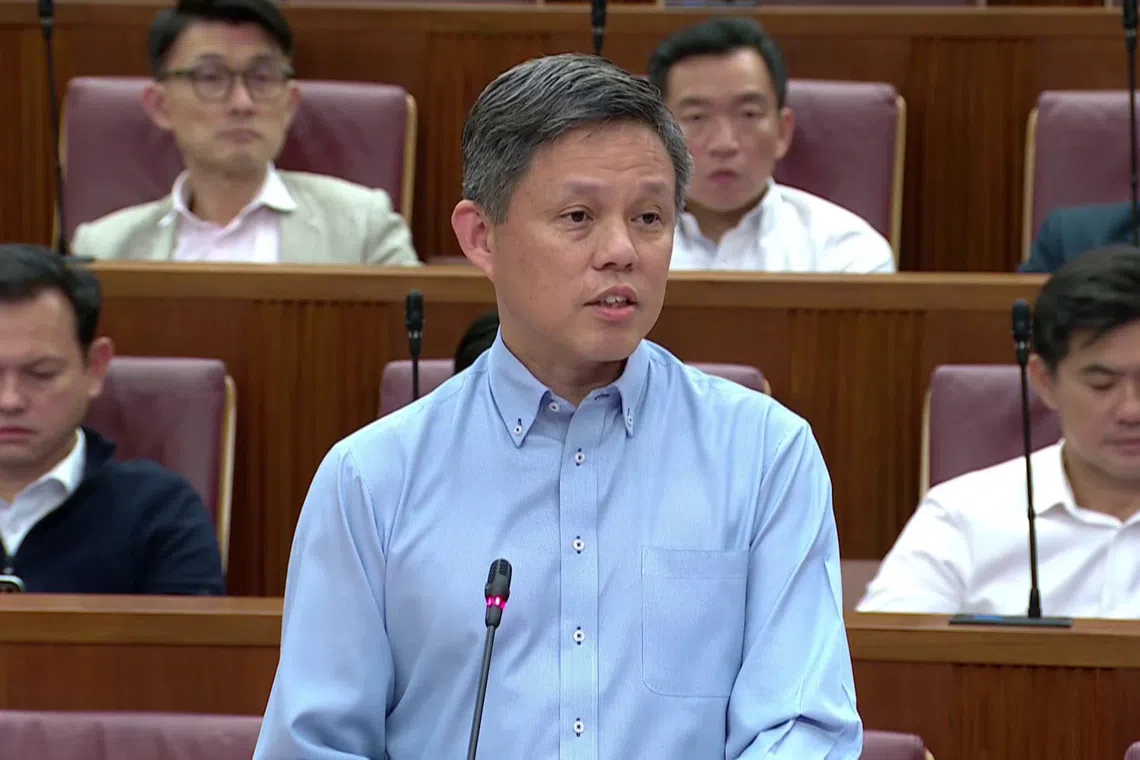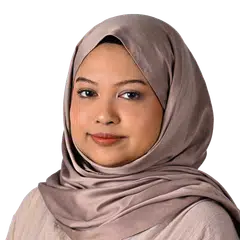S’pore has to be judicious in how it spends public funds, be honest about trade-offs: Chan Chun Sing
Sign up now: Get ST's newsletters delivered to your inbox

Coordinating Minister for Public Services Chan Chun Sing speaking in Parliament on Sept 26.
PHOTO: MDDI
- Singapore must be judicious with public funds and acknowledge trade-offs, as resources are finite and future generations matter.
- Singapore needs to grow its economy to make spending decisions easier, evolving to a "we-first" society, partnering with its people.
- Singapore must understand the world, create value, stay cohesive, and uphold principles to secure its place and attract talent.
AI generated
SINGAPORE – Singapore will have to be judicious in how it spends public funds, and be honest about the trade-offs required, said Coordinating Minister for Public Services Chan Chun Sing.
In a speech on Sept 26 to round up the debate on the President’s Address, Mr Chan said MPs had raised many good ideas over the five days – all of which will ultimately require some resources.
“Everything we want to do more of means something less for either current or future needs. We should not and cannot pretend that there is somehow, somewhere, a free lunch,” he added, noting that the Government has the difficult task of balancing public finances.
MPs must be honest with their residents about these trade-offs, he said, and the Government has to make difficult political decisions like raising taxes – as it did with the goods and services tax – to ensure that revenues continue to keep up with spending needs.
“The Government will do what we can to spend carefully to take care of this generation, but let us not forget that we must also take care of future generations,” said Mr Chan, who is also Minister for Defence.
“Although they are not here to vote for us here and now, but that is what makes Singapore special – that we never define success by how we do for ourselves in this generation only.”
The Republic has to focus on growing the overall economic pie so that it has options and the luxury to make easier decisions on spending, he added.
Mr Chan also stressed that Singapore must aspire to evolve from having a government that delivers for its people, to one that works with and partners them to write the next chapter of its story.
This is as a “we-first” society is about mobilising the full spectrum of its people’s capabilities, creativity and commitment to overcome the challenges ahead, he said.
“Our Government will continue to lead where it must and can... but having said that, we are realistic enough to know that our Government cannot do it all, and certainly not alone,” he told the House.
Mr Chan said Singapore must stay focused on breaking the intergenerational transfer of disadvantage, and that over the years, programmes such as KidStart, ComCare and ComLink+ were introduced to systematically intervene to reduce gaps that begin early in life.
Even so, he said these programmes by themselves are not enough, and each person can and must contribute in their own way to keep Singapore a mobile society.
Calls to do more for various groups are all meritorious in their own right, but resources are finite and Singaporeans must be clear-eyed and reach consensus on who to help more, he said.
“This means that some of us will have to moderate our expectations because there are others who need help more than we do,” he added. “Everyone gets help, everyone gets something, but not all of us will get the same.”
Securing Singapore’s place in a changing world also requires everyone to contribute collectively in four ways, said Mr Chan. These are to understand the world more deeply; create new value propositions; stay a cohesive society; and uphold Singapore’s principles.
He called on Singaporeans to read and think widely and to understand others’ perspectives and agenda, and to access content with discernment.
“It is a discipline to not just view or read what the search engine algorithms throw at us,” he said. “It is also a discipline to seek out fresh perspectives with all the people we meet in our travels, to hopefully bring back new ideas and stress-test our own assumptions.”
While Singaporeans are ultimately responsible for their own destiny, the right to determine that destiny has to be earned by being successful, stressed Mr Chan.
“Only when we are successful can we have the right to choose our path, and not be held ransom or hostage by others,” he said.
This requires the Republic to have resources, and the ability to attract and work with talent beyond its own, and is why it must continue with efforts to remain an attractive partner for others to want to work with.
On the other hand, when longstanding platforms or networks no longer work, Singapore will set up alternative networks to uphold a more integrated global trading and investment system, said Mr Chan.
As tariffs reshape trade and investment flow, many countries now talk about their “plus one” strategy, and there is an opportunity for Singapore if it positions itself as a reliable and resilient partner, he added.
Warning against complacency, he said the country will fall behind others if it stands still.
The public service will strive to do better things with finite resources, and must be bold enough to look for its own solutions, he said, citing past examples like setting up the Economic Development Board to attract investments and continuously evolving the Central Provident Fund over the years.
Mr Chan said delivering with the people means having a government that is prepared to engage even before all policy details have been finalised internally. On the other hand, Singaporeans must accept that not everyone’s ideas will be adopted, in full or in part.
“We’ll take collective decisions, and we hope that we’ll move forward in the right spirit,” he said.
He also pledged that the public service will remain open and attract diverse talent, including mid-careerists. It will also provide opportunities for officers to gain exposure in the private and people sectors, as well as in Singapore’s offices in international organisations, given the increasing importance of understanding how the world is evolving.
To take Singapore to SG100 and beyond, the country will need leaders at every level of society who have a strong sense of mission and gumption to defy the odds, and who not only dare to dream but are also willing to “match our aspirations with our perspirations”, said Mr Chan.
“We will put our collective before self, putting the ‘we’ before ‘me’, and take care of one another,” he said. “So that we can be truly proud that if you want to have the best opportunities in life anywhere in the world, you want to be born in Singapore.”



